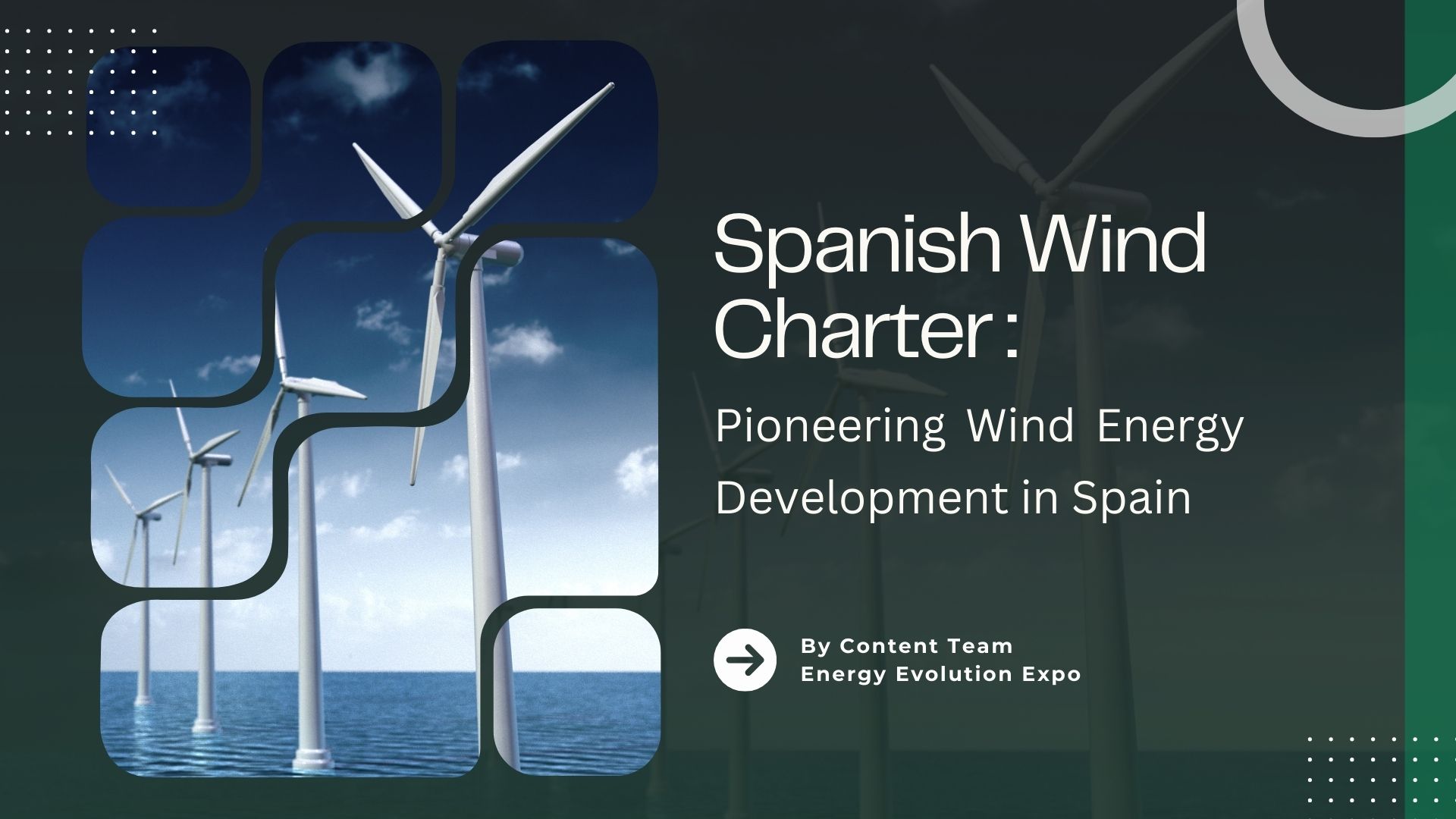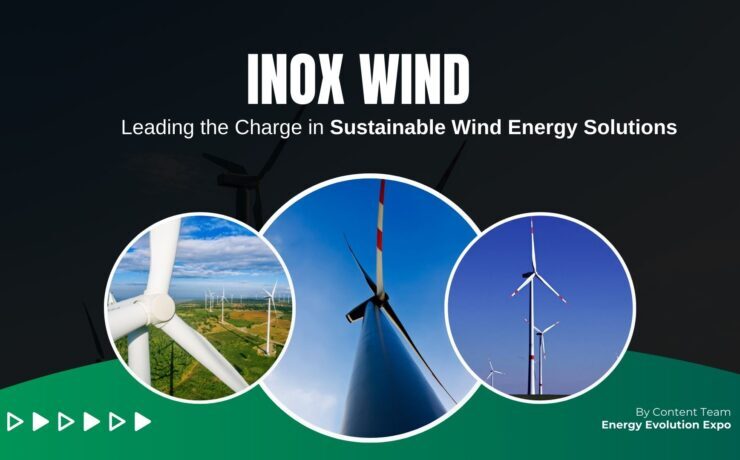Spanish Wind Charter: Pioneering Wind Energy Development in Spain

In a landmark step for renewable energy, the Spanish government and key figures from the wind energy sector have formalized their commitment to advancing wind power through the Spanish Wind Charter. This agreement, signed at the WindEurope Annual Event 2024 in Bilbao, charts a comprehensive course to enhance Spain’s wind energy capabilities, promising substantial economic and social benefits.
Driving Vision and Strategic Planning
Central to the Spanish Wind Charter is the imperative for clear, long-term planning. By providing robust and predictable frameworks, the charter aims to instill confidence among investors and stakeholders. This strategic visibility is crucial for sustained investment, which in turn supports the expansion and stability of the wind energy sector. With defined roadmaps, the sector can better navigate regulatory landscapes and market conditions, ensuring a resilient growth trajectory.
Innovating Auction Mechanisms
The charter calls for a revamp of auction designs, advocating for a more nuanced approach that transcends mere pricing. Traditional auction mechanisms often prioritize cost-efficiency at the expense of other critical factors. The new guidelines propose incorporating criteria such as technological innovation, environmental impact, and community benefits. This holistic approach aims to foster projects that not only deliver energy but also contribute to broader societal and environmental goals.
Synergizing Industry Collaboration
Enhanced coordination among wind energy companies is another cornerstone of the charter. By fostering collaboration, the charter seeks to streamline operations and enhance efficiency across the sector. This collaborative spirit is expected to drive innovations, reduce redundancies, and create a more cohesive industry. Shared best practices and collective problem-solving can accelerate progress and help overcome common challenges, ultimately benefiting the entire wind energy ecosystem.
Ensuring Stability Through Long-Term Agreements
Predictability in regulatory frameworks and the promotion of long-term power purchase agreements (PPAs) are vital components of the charter. Stability and financial security are paramount for the feasibility of wind projects, and long-term agreements provide the necessary assurance for investors. These measures are designed to mitigate risks and ensure that wind energy projects can secure the funding needed for development and operation over extended periods.
Monitoring Fair Trade Practices
To safeguard the integrity of the market, the charter includes provisions for monitoring international trade practices. By ensuring fair competition and preventing market distortions, these measures aim to protect domestic industries from unfair external pressures. This vigilance helps maintain a level playing field, enabling Spanish companies to compete effectively on the global stage.
Strengthening Domestic Manufacturing
The charter underscores the importance of bolstering Spain’s wind energy manufacturing capabilities. By enhancing domestic production, Spain aims to maintain a competitive edge and foster innovation within its borders. This focus on local manufacturing is crucial for creating jobs, supporting economic growth, and reducing dependency on foreign suppliers. It also positions Spain as a hub for renewable energy technology, contributing to its global leadership in the sector.
Economic and Social Ramifications
Wind energy is already a vital component of Spain’s energy mix, contributing 27% of the country’s electricity. The Spanish Wind Charter is poised to amplify this contribution significantly. By driving job creation and economic growth, the charter is expected to reinforce the wind sector’s role as a cornerstone of Spain’s economy. Currently, the wind industry contributes approximately €6 billion annually to the GDP and supports around 40,000 jobs. The charter’s initiatives are set to expand these figures, offering new opportunities and fostering economic resilience.
Leadership in European Renewable Energy
Spain’s proactive stance on renewable energy is well-established, and the Spanish Wind Charter aligns with broader European goals. Spain’s participation in the European Wind Charter and adherence to the European Wind Power Package demonstrates its commitment to regional collaboration. These frameworks advocate for a unified approach to wind energy development across Europe, enhancing collective efforts to meet climate targets and promote sustainability.
Future Outlook
The Spanish Wind Charter is integral to achieving Spain’s ambitious renewable energy targets, including the goal of 74% renewable electricity by 2030. By focusing on regulatory improvements, innovative auction designs, and strong manufacturing capacities, the charter lays the groundwork for a thriving wind energy sector. This stable environment is expected to attract further investment, driving continuous growth and innovation.
Benefits of the Spanish Wind Charter
Benefits of the Spanish Wind Charter
To better illustrate the benefits of the Spanish Wind Charter, let’s consider a hypothetical example involving a new wind farm project, “WindFuture,” in northern Spain.
WindFuture is a proposed wind farm set to be developed in northern Spain. The project aims to generate 500 MW of electricity, sufficient to power approximately 300,000 homes. The WindFuture project is expected to contribute significantly to Spain’s renewable energy targets and economic growth.
1. Visibility and Robustness in Planning
Scenario: Before the charter, planning for WindFuture faced uncertainty due to changing regulations and unclear long-term policies. This instability made it difficult for investors to commit to the project.
Benefit: With the Spanish Wind Charter in place, clear and predictable long-term planning frameworks provide stability. Investors now have the confidence to fund WindFuture, knowing the regulatory environment will remain supportive. As a result, the project secures the necessary capital and begins construction on time.
2. Improved Auction Designs
Scenario: Traditional auctions prioritized cost, often overlooking critical aspects like environmental impact and community benefits. WindFuture, despite its higher initial costs due to advanced technology and community engagement plans, struggled to compete in such auctions.
Benefit: The charter’s revised auction mechanisms consider additional criteria beyond just price, such as the project’s environmental footprint and social benefits. WindFuture’s holistic approach, which includes advanced turbines with lower noise levels and a commitment to local community programs, wins the bid. This ensures the project is not only economically viable but also socially responsible.
3. Enhanced Coordination Among Companies
Scenario: Various companies involved in WindFuture, including turbine manufacturers, construction firms, and grid operators, faced coordination challenges. Misalignments led to delays and increased costs.
Benefit: The charter encourages better synchronization and collaboration among industry players. A coordinated effort results in streamlined processes, reducing delays and costs. For WindFuture, this means timely project completion and improved operational efficiency, maximizing the benefits of the investment.
4. Increased Predictability and Long-Term Agreements
Scenario: Financing WindFuture required long-term power purchase agreements (PPAs) to ensure revenue stability. However, unpredictable regulatory changes previously made it difficult to secure these agreements.
Benefit: The charter promotes stable regulatory frameworks and long-term PPAs. WindFuture successfully negotiates a 20-year PPA with a major utility company, guaranteeing a steady revenue stream. This financial predictability attracts more investors, ensuring the project’s long-term viability.
5. Monitoring of International Trade Practices
Scenario: WindFuture faced competition from foreign companies benefiting from unfair trade practices, such as government subsidies. This distorted the market, making it difficult for domestic companies to compete.
Benefit: The charter includes measures to monitor and address unfair trade practices. As a result, the competitive landscape is fairer, allowing WindFuture and other domestic projects to thrive. This fosters a healthy market environment, encouraging innovation and growth within the Spanish wind energy sector.
6. Reinforcing Domestic Manufacturing Capacities
Scenario: Previously, WindFuture had to import several key components, leading to higher costs and longer lead times. Domestic manufacturing capabilities were insufficient to meet the project’s needs.
Benefit: The charter’s focus on strengthening local manufacturing capabilities leads to the establishment of new facilities in Spain. WindFuture sources most of its components locally, reducing costs and lead times. This not only benefits the project but also boosts the local economy by creating jobs and fostering technological advancements.
Through the WindFuture example, we see how the Spanish Wind Charter can transform wind energy projects. By providing clear planning frameworks, improving auction designs, fostering collaboration, ensuring regulatory stability, monitoring trade practices, and boosting domestic manufacturing, the charter creates an environment conducive to successful wind energy projects. This holistic approach not only drives economic growth and job creation but also enhances Spain’s leadership in renewable energy, setting a benchmark for other nations.
The charter’s impact extends beyond the energy sector, promising broader economic and social benefits. By reinforcing its commitment to wind energy, Spain is poised to enhance its energy security, create jobs, and drive technological innovation. The Spanish Wind Charter is a testament to the country’s dedication to sustainable development and its vision for a greener, more resilient future.
We need to keep up with all recent innovations to reap maximum benefits and to facilitate a better understanding of the latest developments and trends in the Renewable energy Industry, various Conferences and Expos, which bring Industry leaders together, serve as an all-inclusive platform.
The Energy Evolution Awards, Conference, and Expo organized by Next Business Media is making its debut in Spain in 2025. It will be a leading forum dedicated to honoring excellence in Energy Technology, showcasing innovations, and fostering collaborations. The events unite industry leaders, and visionaries to explore the latest advancements, tackle key challenges, and shape the future of Energy. The Energy Evolution Awards, Conference, and Expo will celebrate outstanding achievements, promote sustainable practices, and drive the Energy Industry forward into a technologically advanced sustainable era. Energy Evolution Awards, Conference, and Expo will be a platform for cultivating innovation and shaping a brighter, more efficient energy landscape.






